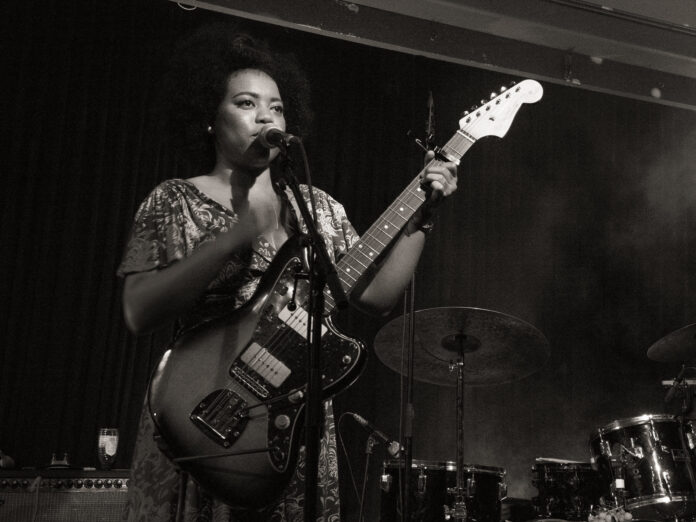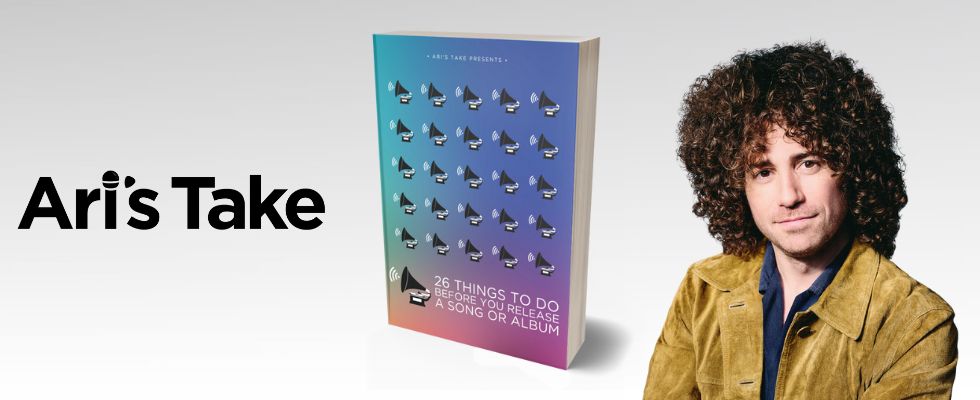Most aspiring artists are chasing their creative dreams on a shoestring budget. Musical gear, recording costs, and promotion expenses can be incredibly expensive, which is why properly managing your money is crucial.
As an independent musician who’s spent the last 15 years navigating the music industry, I’ve made my fair share of miscalculated choices that set me back financially.
There are plenty of ways to misuse your precious funds; from marketing services encouraging you to buy Spotify plays, to compulsively purchasing newly released audio plugins.
To help you avoid similar pitfalls, I’d like to share with you 8 money mistakes I’ve learned to avoid as a musician.
Quitting your job
As a creative, it can be difficult to find time to work on your art, especially while juggling a part-time or full-time job. Between work, sleep, and trying to have a social life, you’re lucky if your music receives an hour of your attention each day.
As fun as quitting your job might sound at first, that choice will get you nowhere fast. If your current job is burning you out, finding a job that supports your musical lifestyle is a great way to lessen the daily drudge of working for the man.
Find a position that allows for flexible hours, so you and your band can take time off to do short tours without having to find a new job when you arrive back home.
Landing a job that allows you to be in a musical environment such as Guitar Center, for example, has its benefits. Guitar Center offers health insurance, 401k, and most importantly, a pretty sweet employee discount.
Before you think about quitting your job, make sure that your income from your music-related venture reaches the same amount of income you are earning from your employer. That way you’ll experience a smooth transition without having to plan for a decrease in cash.
Buying fake streams or followers
In the world of social media, an artists’ popularity can be judged by how many Instagram or Twitter followers they have. These vanity metrics have entertainers and influencers alike working hard to increase those numbers in a variety of non-organic ways.
Several services have popped up promising to boost your follower count. Some stream-focused websites will offer to increase the number of your Spotify or Soundcloud plays for as little as $5 per 1,000 streams.
Many services claim the streams come from real users, but that is a lie. The streams are created by bots.
Is buying fake streams safe? No, and here’s why.
Spotify pays their artists for streams, so buying fake streams is essentially committing fraud, (even if Spotify only pays you a ridiculously low royalty of $0.003 per stream.)
Spotify’s algorithm has data learning technology that can determine where streams come from by IP address. If their computers detect unusually inflated streams at any certain time, your profile will be flagged, and your music will be removed from Spotify’s platform.
Don’t buy Soundcloud plays either. Soundcloud states on their website if you engage in purchasing fake streams, you risk being permanently suspended from their platform.
The fact is, fake followers or streams aren’t fooling anybody. It’s best to grow your audience naturally. You’ll feel much better about yourself knowing your stats are 100% authentic.
Buying way too much merch
When I was in a band, we thought it would be a great idea to order 5,000 CDs and several boxes of shirts. After all, the larger the quantity, the cheaper they were.
The problem was, we didn’t have a considerable audience. We sold maybe $25-$75 worth of merchandise per show, and we didn’t play live very often. We hardly made a dent in our inventory before our band eventually broke up, leaving us with thousands of dollars worth of useless merchandise.
If you want to offer physical products for purchase, start by ordering a small batch. You’ll be paying a bit more per item, but you’ll thank yourself for starting slow. If you prefer to avoid the possibility of being stuck with merch nobody wants, set up an on-demand print store with Merch by Amazon or Printify.
Booking expensive studio time
Many amateur musicians are eager to get into a studio to begin recording their masterpiece. Sometimes, artists book studio time before their song or songs are completely written and fleshed out. This equals more time in the studio, which means less money in your pocket.
Recording studios and audio engineers can cost anywhere from $30 to $100 per hour. If you aren’t careful, you can find yourself spending much more than expected on your song or album.
It’s important to make sure your songs are written from top to bottom before you step into a studio. If you can, it’s a good idea to record a demo of your songs first. That way you’ll be able to listen back to the track for reference.
Ensure all participating members in the band have previously practiced their parts, so when it’s time for that wicked guitar solo, the lead guitarist can nail his riff seamlessly without burning up 30 min of valuable studio time.
Better yet, buy your own home recording studio setup for under $1,000 and put the money you’ll be saving toward a Masterclass course on audio engineering or music production. Then you’ll be able to record your own music for free.
Buying Unnecessary Gear
I have many friends who purchased top-of-the-line gear straight out of audio engineering school, and many of those friends have since ceased pursuing a career in music.
Some of that gear was sold for half of what they paid. Some of them still have their gear sitting in the basement collecting dust and going out of date.
You may think you need to own a Fender or Gibson guitar in order to look or sound like a legitimate musician. You don’t. And if you’re a beginner or intermediate player, you certainly shouldn’t start there.
Go for a Squire or an Epiphone instead. Those two companies have some great sounding models for a fraction of the cost. Nowadays, there are many high-quality and affordable microphones, interfaces, headphones, and instruments to choose from that will help you achieve a great sound without breaking the bank.
Paying a PR Company
So you’ve got your song or album recorded. Great! Now it’s time for promoting your record.
You’ve got two options here.
- a) Put together your own press kit, spend countless hours collecting emails from hundreds of blogs, newspapers, and online magazines, then pitch a thoughtful email to each contact asking them to write about your project.
- b) Hire a PR company to do it for you.
The benefit of a PR company is that they claim to have relationships with publications, meaning there’s a higher chance you’ll secure a feature of some kind.
The unfortunate reality is that PR placements are not guaranteed. PR campaigns can cost an upwards of $1,000-$10,000 depending on the company you choose and the length of time the campaign will run for. It can be a bummer when you don’t achieve the results you expected.
Unless you’ve got at least $5,000 sitting around for a music promotion budget, I suggest sucking it up and doing the work yourself. But, if you’re low on free time or you absolutely hate doing that kind of work, an affordable solution would be to hire a PR service from Fiverr.
Pay-to-play
There’s a lot of controversy over pay-to-play deals given out by venue and bar owners. The most popular pay-to-play deal is where you pay a certain amount, then you receive tickets to your show.
You’re then responsible for selling those tickets in order to earn your money back. Hopefully, you’ll even make some money on top as well.
This is a great insurance policy for club owners, but not always a great deal for solo artists or bands who are trying to get their name out there. Playing shows shouldn’t cost you money. Unless you’ve been offered an opportunity to be the opening act for a nationally known artist like Greta Van Fleet, stay away from pay-to-play deals.
Signing to a label
Many artists wonder how to get signed by a record label. They think it’s the holy grail to their success.
Here’s the thing. Record labels are pretty much old news. In an interview with Breakfast Club, independent rapper, Russ, said, “A label is a bank with shitty rates…”.
Russ suggests funding your album release with a line of credit from your bank rather than trying to get signed by a label that will front the cash.
Russ speaks on how he funded his #CHOMP2 project & radio singles with a line of credit from bank. He says it’s much better than getting a “loan” from a major label 💰 pic.twitter.com/F34oOed64W
— Navjosh (@Navjosh) December 13, 2021
Russ has a great point. By funding your project with a loan, you retain creative control, and you won’t have to forfeit your masters or give a percent of your earned revenue to anybody (aside from the expected interest rate, of course).
Jared Leto from the rock band 30 Seconds to Mars released a documentary titled “Artifact” which covers their lawsuit with Virgin/EMI Records, exposing the shocking truths of how a record label works.
Record labels are generally only interested in artists or groups who are already making a substantial income and have created an impressive fan base on their own. If you’ve been fortunate enough to achieve that level of success, you might be better off staying unsigned so you can keep 100% of your profits.
Are there any other musician money tips you’d like to share with us? If so, let us know in the comments!

















